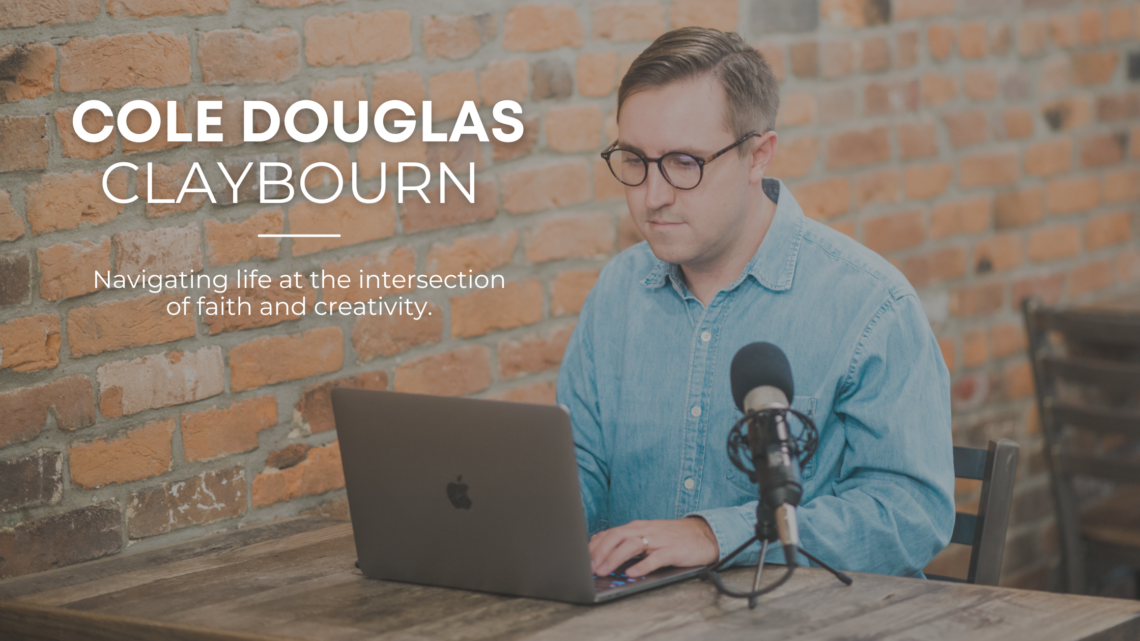The Challenge of Building Good Habits
Something I really struggle with is setting and sticking with good habits. I don’t think I’m alone.
According to James Clear, the author of “Atomic Habits,” it takes about 66 days for a behavior to become a habit, and in some cases that can take anywhere from two to eight months. Whether it’s a new diet plan, exercising, budgeting or anything else, the reality is that most people stop way short of that benchmark and fail in in their goal of making a behavior a habit.
One of my favorite people who I consider an expert on habit building is author Hannah Brencher. She was a guest in October 2020, not long after she had a child and was set to release her latest book, Fighting Forward, a few months later. She does a lot, yet she’s developed a way to manage it all.
While we talked mostly in the context of writing, her advice can translate to any vocation or hobby where you are trying to build habits. Here are five questions with her about building good habits and fighting the obstacles that often stand in our way in the process. (Some of these answers have edited and condensed for clarity)
Cole Douglas Claybourn: What have you found has been the balance between introducing a new child into your life, but continuing to write as much as you do?
Hannah Brencher: I think what really prepared me for being able to have both her and this career was years of building discipline, habits, routines and rhythms. I would tell anybody that if they feel like they don’t have any kind of daily discipline to start building that. Start by reading a book like Atomic Habits and build better, healthier habits into your day.
For me, it’s constantly readjusting and figuring out how to juggle all of it. But, I will say, having those blocks of time where you know what work you’re doing, you’re getting rid of all sorts of distractions. Social media doesn’t come into that time, email doesn’t come into that time. I make sure that I have that time multiple times a week so that I can be producing content. For me, I feel like if I can produce content, then the sharing it on social media and through email, that’s the easy part. You don’t need to be creative to be able to build the marketing, it’s more so you need those times where you have uninterrupted creative time to actually build something worth reading. I know that if I can feed my readers with good words, that’s the most important thing that I can be creating.
CDC: How important is discipline to be successful as a writer?
HB: I think it’s everything. As creatives, we’re often not expected to have discipline. It’s almost like, “I just go where inspiration leads me.” I had to scrap that way of thinking a few years ago and figure out really how to hack my process. I’m definitely somebody who believes that writing is deeply creative and there are definitely going to be times where inspiration takes over and you’re writing in a flurry. But I think I’ve gotten to this point now where I think that writer’s block is a myth and that it’s actually just resistance that we need to push through.
If my hours are very slim in a day because I have other things that have to be done, people that need to be tended to, then I need to be able to get the marrow out of the hours that I do have. A lot of times I feel like that is going in with a plan. If you’re writing multiple times a week — especially if you’re doing it at the same times per week — your brain is going to kick in and know to get into that creative mode.
I’m not saying everything you write is going to be the most earth-shattering thing and you fall in love with it, because there are days when I write and I don’t like anything I produced. But it’s that consistent showing up, and I think years ago I did not have that level of discipline.
CDC: For people who struggled with procrastination or just sitting down to write until they feel inspired or feel the “muse,” what is your advice?
HB: That’s where I would definitely say you just kind of have to push past that resistance. I feel like even if it is just sitting down and writing a bunch of words that aren’t your best words but you did it, you sat down and you did it…the way that I think about it is, writing feels like it’s one of the only creative ventures or hobbies that you can say you want to be a writer, but yet you never sit down to write. You can’t say that in any other field. You can’t say, “I want to be an Olympic swimmer,” and never get in the pool. It doesn’t work that way.
I would challenge people with that kind of thinking. If you want to be a writer, you’ve got to sit down as much as you can and write. That’s 1. So you get skilled at the craft, and 2. So that you figure out and hone your voice. That would be what I tell people. You’ve got to sit down every single day, if you can, even if that’s only 15 minutes. Give that 15 minutes to this craft so that you can grow and evolve in it. If you’re only writing once a month, that is definitely not enough time to actually hone that craft. Even if you don’t have a lot of time, you have 15 minutes. We all have 15 minutes.
CDC: How do we fight past feelings of fear that our writing isn’t good, that no one will read it or that our words don’t matter? What truths do you hold strongest to?
HB: Especially when it comes to that idea of fear, especially if you write on a semi-consistent basis and you’re writing something that fills you with a little bit more anxiety, worry or nerves about, “Does this matter?” “Is anybody going to read this?” I feel like the times where I’m feeling more resistance means that it matters the most. We live in this culture now where people are obsessed with followers and numbers. Like, how many followers or readers do I need to be successful? I look back to when I first started my blog and the first time I ever had a reader that wasn’t my mom or my best friend or somebody I knew from my college, I remember being so shocked…I just remember having this huge celebration of, “Oh my gosh, somebody that I don’t know is reading my blog and is getting something from it.”
I would tell people to rejoice in that. Love those small beginnings right there. Don’t pressure yourself to have an email list of 30,000 people. Build one-by-one while you can, because now I’ve definitely gotten to the point where it’s not as easy for me to go one-by-one. I miss those days because it was so great to be able to connect to people and show up at peoples’ baby showers randomly. I feel like it’s never taking a single person who is reading your words for granted, because that’s what fear wants to keep from you — putting anything out there because you’re afraid it’s not going to make an impact. If it changes one person’s life, that’s literally amazing. That’s earth shattering. Somebody’s life could be changed through your words. What a privilege that is.
I would tell you to push past the fear because that’s what’s on the other side of it: somebody’s life is going to be changed or impacted or made better because of what you’ve written.
CDC: How can people fight past comparison and just focus on their own walk?
HB: I think that’s the answer right there, what you just said: You have to focus on your own race. That’s it. Right there. It’s hard, but it’s a continual reminder to keep putting the blinders on, like the way they put the blinders on horses so that the horses aren’t looking to the left and the right of them in the midst of the race because it will slow you down. It’s the only thing that’s going to slow you down, is if you’re looking to the right and the left of you.
Every single day I have to make a conscious choice to wake up and focus on what’s here on my plate. Not what’s on somebody else’s plate. Not what somebody else is doing. Practically, that looks like taking my phone and putting it in a box. I put my phone in a box any time I’m doing anything creative because I can so easily get distracted. I can so easily start to see what other people are doing. The second you get on social media, I would just say social media a lot of times, if I’m speaking from my own experience, it just deteriorates my mood. I can’t say that I ever get on social media and I leave super inspired, unless I’m on Pinterest. Why the heck would I bring that into my writing room?
The best thing you can do is fall in love with the creation process, if it’s two readers, if it’s 10 readers, if it’s 10,000 readers…I really tried to take a hospitality approach to the people that are following me and reading my words and showing up to my blog. How can I serve? If you look at your platform as a way to serve, that will end up fueling you rather than draining you.
You can listen to the full episode with Hannah below.

